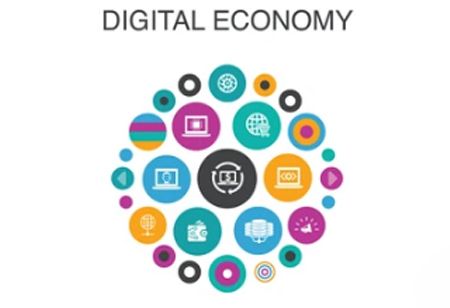
India on Track for $1 Trillion Digital Economy


India is poised to become a $1 trillion digital economy by 2028, thanks to deep internet penetration, efficient 4G and 5G services, and the government’s robust digital initiatives.
The transformation is driven by increasing smartphone usage, affordable internet, and a major shift in the country’s financial ecosystem, which is leveraging innovations like Unified Payments Interface (UPI) to drive real-time digital transactions.
The push towards financial inclusion has been a game-changer in a cashless society. Government schemes like Pradhan Mantri Jan Benefit Transfer (DBT) have provided universal access to financial services, especially in rural areas.
This push has been supported by the growth of smartphones and affordable data plans, which are enabling millions of citizens to access banking services and participate in the formal economy.
India’s digital ability is now outpacing several developed nations, including Japan, the UK, and Germany. Over 70 million new internet and broadband subscribers were added in the past year alone, boosting sectors like healthcare, education, and e-commerce through digital advancements. The Reserve Bank of India is also introducing the Unified Lending Interface (ULI) to improve credit access for rural and small borrowers, further driving financial inclusion.
In the financial space, the rise of digital payments has been particularly remarkable. Retail digital transactions are projected to reach $10 trillion by 2026, with UPI handling a significant 90% of these payments by 2027.
Digital services such as telemedicine, online education, and e-commerce are experiencing rapid growth as well; initiatives like the Ayushman Bharat Digital; Mission and e-Sanjeevani telemedicine platform are expanding healthcare access, while digital classrooms and e-learning platforms are revolutionizing the education landscape.
India’s digital transformation is expected to be a catalyst for its overall economic development, with technology becoming the backbone of sectors such as 4G and 5G technologies becoming increasingly widespread, India is on the path to not only revolutionizing its financial ecosystem but also becoming a global leader in digital innovation by 2028.